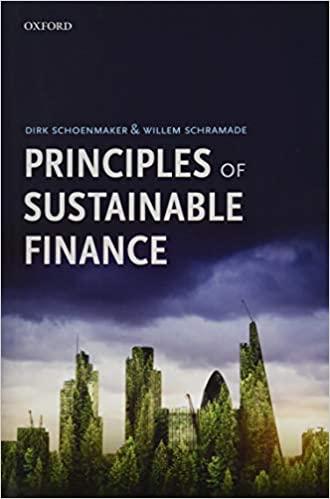Question
Ronald J. Gulla and his wife owned the Gulla Farm. In 2002, they leased their oil and gas rights to Range Resources Company (Range). Range
Ronald J. Gulla and his wife owned the Gulla Farm. In 2002, they leased their oil and gas rights to Range Resources Company (Range). Range drilled wells on the farm. The Gullas complained that Ranges activities contaminated their pond and property. In Spring 2007, Range wanted to purchase land for its field operations office. Range was assisted by Mr. Matthews, a licensed real estate agent associated with the broker, Howard Hanna. In May 2007, Range representatives suggested to the Gullas that Range buy their farm. Range suggested that the Gullas might be interested in a 1031 tax-free exchange and p. 303mentioned the Smith Farm as a possible replacement. (A 1031 tax-free exchange involves (1) a sale of property, (2) the purchase of replacement property, and (3) deferral of the tax on the appreciation on the first parcel until the second property is sold.) Range informed the Gullas that it wanted the Gullas to use Howard Hanna and Matthews. Mr. Gulla and Matthews met to discuss the sale of the Gullas Farm to Range and a 1031 tax-free exchange. Mr. Gulla advised Mr. Matthews that he would not sell unless an adequate unencumbered replacement parcel was available, i.e., a property with its mineral rights attached. They discussed the Smith Farm. Mr. Gulla asked Mr. Matthews to do a title search to make sure that the mineral rights of the Smith Farm were not encumbered, and Mr. Matthews assured him that he would do so. That same day the Gullas signed an Exclusive Buyer Agency Contract (EBAC) with Matthews and Howard Hanna. Under the agreement Matthews and Howard Hanna would represent them in any purchase of property the Gullas made during the term of the contract. The EBAC contained disclosures about the 1031 exchange and that Range was also employing Howard Hanna to locate other properties if Range did not purchase the Gulla Farm. Per the EBAC Mr. and Mrs. Gulla expressly authorized Howard Hannas involvement in the negotiations with Range for the purchase of the Gulla Farm, and agreed that Howard Hanna would serve as a dual agent representing both Mr. Gulla and Range, with any fee to be paid by Range. The Notices to Buyers indicated Matthews could show or present the same properties to other buyers, and defin[ed] conflict of interest as when a Broker or Licensee [i.e., Matthews] has financial or personal interest in the property where Broker or Licensee cannot put Buyers interest before any other[,] and in that event, requiring Broker to notify Buyer in a timely manner. The agreement did not mention the Smith Farm or make the sale contingent upon the Gullas locating an acceptable replacement. It contained the following integration clause: This is the entire agreement between Broker and Buyer. Any verbal or written agreements that were made before are not a part of this agreement. Any changes or additions to this agreement must be in writing and signed by Broker and Buyer. Matthews sent the Gullas information about potential properties. On July 26, 2007, Matthews and the Gullas visited the Smith Farm and Matthews encouraged them to make an offer on it. Later that day, they prepared a written offer to sell the Gulla Farm to Range. This offer did not mention that it was contingent on the Gullas buying the Smith Farm or on the successful completion of a 1031 tax-free exchange. After the Gullas offer was communicated to Range, Matthews told the Gullas that their $900,000 verbal offer on the Smith Farm had been rejected. Matthews sent the Gullas information about additional farms for sale. Two days later, Matthews advised the Gullas that Range had accepted their offer to sell Range the Gulla Farm. This resulted in a fully executed sales agreement for the Gulla Farm. Matthews encouraged the Gullas to submit another offer on the Smith Farm and they submitted a $1.1 million offer expressly including all mineral rights. After the offer on the Smith Farm was presented to the owners, Matthews told the Gullas that the Smith Farm was subject to an oil and gas lease with Range. He admitted he had not performed the title search on the Smith Farm. The Smiths turned down the Gullas offer. Now that the Gullas were aware of the oil and gas lease on the Smith Farm, they were no longer interested in it. The Gullas refused to close on the sale of the Gulla Farm to Range. Range sued for specific performance of the contract and won. The Gullas seek damages against their real estate agent Matthews and Howard Hanna for losses because Matthews misrepresented that there were no oil and gas leases on the Smith Farm. They contend that they would not have sold their farm to Range absent the misrepresentations.
Assume that this case against Matthews and Howard Hanna has been appealed to your court. How would you decide this case? Be certain that you explain and justify your answer.
Can the Gullas make out a claim for misrepresentation or is their claim barred by the parol evidence rule? If the parol evidence rule applies, is there an exception that also applies?
Was the EBAC a fully integrated contract or a partially integrated contract? Why?
Step by Step Solution
There are 3 Steps involved in it
Step: 1

Get Instant Access to Expert-Tailored Solutions
See step-by-step solutions with expert insights and AI powered tools for academic success
Step: 2

Step: 3

Ace Your Homework with AI
Get the answers you need in no time with our AI-driven, step-by-step assistance
Get Started


